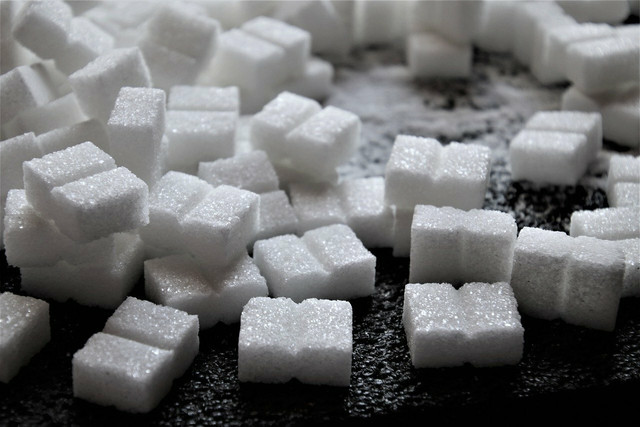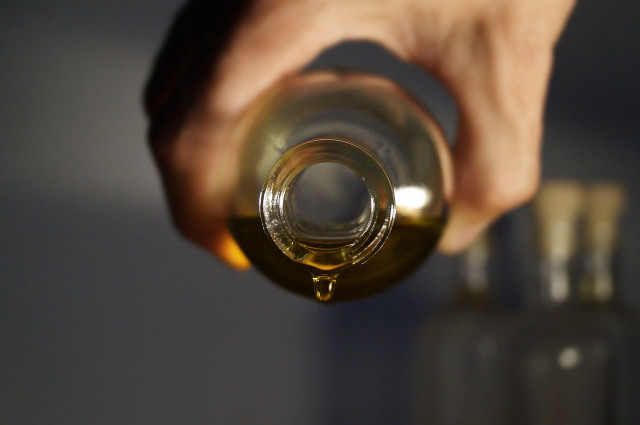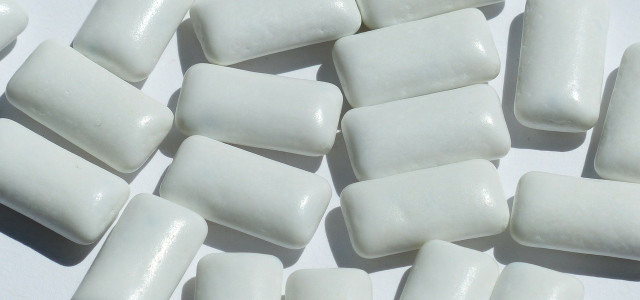Chewing gum is a staple in many of our daily lives. However, it is often made of harmful ingredients. Read on to learn about how to find better alternatives.
Chewing gum has a much longer history than you might initially expect. According to an article by the Smithsonian, the earliest chewing gums date back thousands of years. Different societies developed different kinds of chewing gum over the years, such as ones made of birch bark tar in ancient Scandinavia, and those made of tree sap in ancient Mayan society. But what are modern chewing gums made of? Unfortunately, many of them use unnatural ingredients including petroleum, artificial sweeteners, and softeners. We’ll discuss them in more detail below.
Petroleum

You may have wondered before what chewing gum is made of since it has such a unique texture. The answer may surprise you: Many chewing gums use a petroleum base to achieve their signature chewiness.
Unfortunately, petroleum, as a product of the oil industry, is associated with many negative environmental effects. The oil industry is responsible for large-scale pollution, even outside of the effects of burning oil or accidental oil spills. Furthermore, some of the major suppliers of the petroleum base for chewing gums are companies like Goodyear, whose operations have been linked to health problems in their workers. As you can see, there are a whole host of ethical issues associated with petroleum-based gums.
Artificial Sweeteners



Chewing gum is also made of sweeteners. While some chewing gums use sugar, others use artificial sweeteners, which may be another source of concern for some consumers.
Many artificial sweeteners have attracted prominent health controversies over the years. For example, saccharin remained on the FDA’s list of known carcinogens for decades after a study by the National Cancer Institute found that it could cause bladder cancer in rodents. However, it was removed in 2001 after subsequent research failed to find a link between saccharin and cancer in humans due to the small levels consumed within a daily diet. Similarly, there have been mixed findings surrounding whether other artificial sweeteners such as aspartame are carcinogenic. The FDA continues to approve of these sweeteners, indicating that they are safe to consume in normal amounts. Some individuals may, however, choose to avoid them.
Nonetheless, some individuals may favor gums that use artificial sweeteners because they can ameliorate certain health conditions. For example, because they are sugar-free, gums that use artificial sweeteners are better for your dental health, as endorsed by the American Dental Association. Furthermore, the low sugar content makes them more suitable for individuals with conditions like diabetes. If you are avoiding natural sugars for such health reasons, gums that utilize artificial sweeteners may be more appealing despite other concerns.
Softeners and Emulsifiers



Softeners and emulsifiers are also on the ingredient list for chewing gum. Both kinds of ingredients help create the soft texture of chewing gum, but in slightly different ways.
Chewing gum is usually made from a vegetable-based compound known as glycerin, which acts as a temperature-based softener when you place gum inside your mouth. You can find glycerin in many different products, including food and beauty items, and it is considered a safe ingredient.
Emulsifiers, on the other hand, are slightly more controversial. Emulsifiers are a class of chemical compounds that have both water- and oil-attracting properties, helping foods to retain moisture even after long periods of time. While you can find emulsifiers in many foods other than chewing gum, some evidence suggests that they may not be healthy for you. For example, findings from a 2019 study suggest that soy lecithin, a common emulsifier, may be detrimental to gut health. Although further research is warranted, some individuals might want to avoid chewing gum that is made of standard emulsifiers.
What Are the Alternatives?
Standard chewing gum is made of several ingredients that some people might want to avoid. Luckily, there are more and more natural alternatives these days.
- For example, Simply Gum (available on Amazon**), uses organic ingredients and is petroleum-free. It’s based on chicle tree sap, candelilla wax, citric acid.
- Similarly, Glee Gum (available on Amazon**) is made of non-GMO ingredients. Instead of petroleum, it’s based on chicle, a natural tree sap. It also emphasizes sustainability by providing fully recyclable packaging.
If the ingredients that typical chewing gum is made of concern you, these alternatives can still give you something to chew, without all of the unwanted side effects.
Read more:
- What is Gelatin Made of? 5 Vegan and Vegetarian Substitutes
- Is Brown Sugar Vegan? The Truth & Vegan Sugar Brands
- Avocado Benefits: How Healthy is this Problematic Superfood?
Important Information regarding Health-related Topics.
** Links to retailers marked with ** or underlined orange are partially partner links: If you buy here, you actively support Utopia.org, because we will receive a small part of the sales proceeds. More info.Do you like this post?








